“Total Assets III” Financial Trust for AR$10,000,000,000







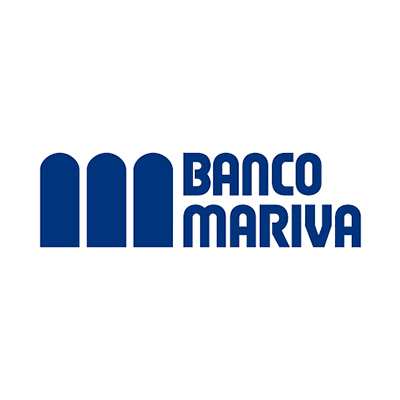




Deal counsel in the issuance and placement in Argentina of trust securities for the aggregate of AR$ 10,000,000,000 issued under the “Total Assets III” Financial Trust, in which Crédito Directo S.A acted as trustor, TMF Trust Company (Argentina) S.A. acted as trustee, Banco de Servicios y Transacciones S.A. acted as arranger, placement agent and settlement agent, and Macro Securities S.A.U., Nuevo Banco de Santa Fe S.A., Banco Patagonia S.A., Banco de Valores S.A., Banco Mariva S.A., Industrial Valores S.A., Adcap Securities Argentina S.A., Deal S.A., and Nación Bursátil S.A. acted as placement agents.
“CFA CRÉDITOS IV” Financial Trust for AR$9.500.000.000



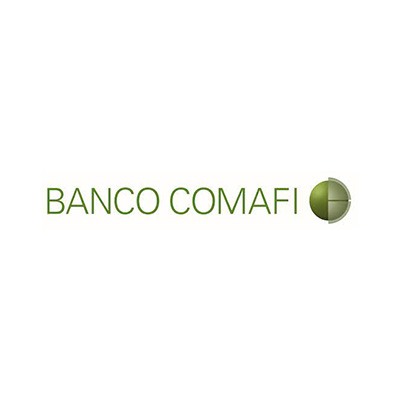

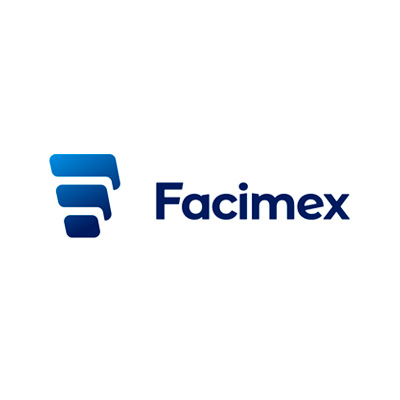
Deal counsel in the issuance and placement in Argentina of trust securities for AR$9.500.000.000 issued under the “CFA CRÉDITOS IV” Financial Trust, in which Compañía Financiera Argentina S.A. (Efectivo Sí) acted as trustor, arranger, collection agent and placement agent, TMF Trust Company (Argentina) S.A. acted as financial trustee, Banco Patagonia S.A. acted as arranger and placement agent and Banco Comafi S.A, Adacap Securities Argentina S,A and Facimex Valores S.A acted as placement agents.
Province of Cordoba’s Class 4 Bonds Issuance for AR$ 120,000,000,000 (approximately US$ 118,362,654)












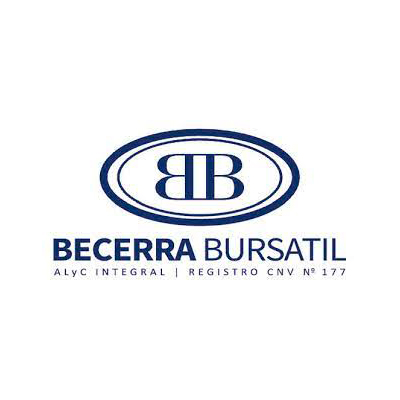

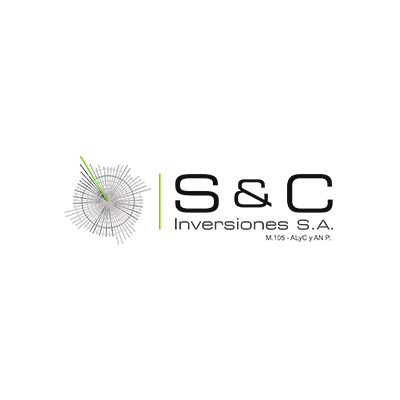
Legal counsel to the Province of Córdoba, as issuer, Banco de la Provincia de Córdoba S.A., as arranger and placement agent, and Banco Santander Argentina S.A., Banco de Servicios y Transacciones S.A., Banco de Galicia y Buenos Aires S.A.U., Macro Securities S.A.U., Banco Comafi S.A., Banco Patagonia S.A., Banco de la Nación Argentina, Puente Hnos S.A., Consultatio Investments S.A., Petrini Valores S.A., Becerra Bursátil S.A., Invertir en Bolsa S.A. and S&C Inversiones S.A., as placement agents, in the issuance of Province of Córdoba’s Class 4 Bonds (the “Class 4 Bonds”), under the Province of Cordoba’s Treasury Bonds Issuance Program for up to US$350,000,000. The payments due under the Class 4 Bonds are secured by a collateral assignment over rights of the Province of Córdoba arising from the Federal Tax Regime (Regimen de Coparticipación Federal). The Class 4 Bonds were issued in an aggregate principal amount of AR$ 120,000,000,000 equivalents to approximately US$ 118,362,654. Principal under the Class 4 Bonds is adjusted by the Reference Stabilization Index (Coeficiente de Estabilización de Referencia) plus a 9.75% interest rate. The Class 4 Bonds are due on December 5, 2027, and are repaid in two (2) amortization installments on June 5, 2027, and December 5, 2027. The proceeds of the Class 4 Bonds will be applied by the Province of Córdoba to the financing of the execution of infrastructure projects.
Foundations Law: Hydrocarbons and Natural Gas Regulation
On November 29, 2024, the Government of Argentina released Decree 1057/2024 (“Decree 1057”), that regulates Chapters I, II, and VI of Title VI of Law No. 27,742 ( “Foundations Law”), which modifies Law No. 17,319 on Hydrocarbons (“Hydrocarbons Law”), Law No. 24,076 on Natural Gas (“Natural Gas Law”), and environmental legislation under Law No. 27,007 (the "Environmental Regulation").
To review our comments on the Foundations Law, please access here.
The key takeaways of Decree 1057 are summarized below:
1. Regulation of the Hydrocarbons Law
- Decree 1057 establishes certain guidelines regarding the activities of exploration, exploitation, processing, transportation, storage, industrialization, and commercialization of hydrocarbons, including:
- Free market principles;
- Competitive markets through the participation of the actors across the production chain and related sectors;
- Local price alignment with international market conditions, ensuring hydrocarbons supply and parity in imports and exports;
- Efficient resource allocation;
- Long-term contracts, competitiveness, productivity, and integration into global trade; and
- Ensuring present and future hydrocarbons local supply.
- Interested parties in developing the previously mentioned activities shall (i) establish a legal address in Argentina and (ii) demonstrate financial and technical capacity. Regarding interjurisdictional and international transportation, the Government shall grant concessions and authorizations for inter-provincial operations, as well as for imports and exports.
- Decree 1057 provides for the free exports of hydrocarbons, subject to specific requirements, that include the submission to the Secretary of Energy of documentation that evidences (i) the details of the planned operation, (ii) production capacity, (iii) commercial agreements, (iv) compliance with the destination country requirements, (v) legal representative information, (vi) semi-annual and annual projections of volume and quality of hydrocarbons, port of in operation, and loading estimated date. The Secretary of Energy may object exports in case of:
- Shortages affecting local supply;
- Inaccuracies in the submitted documentation;
- Evidence of anti-competitive practices; and
- Unforeseeable variations of prices in the local market.
- The Secretary of Energy shall manage an export registry to monitor approved, objected, and completed transactions, and shall issue the Free Export Certificate in favor of the interested party i if no objections are raised.
- The Secretary of Energy may consider the export of surplus volumes of gas.
- Concessionaries shall submit annually the information regarding the availability of the resources and estimated production.
2. Natural Gas Law Regulation
- Decree 1057 provides for the free exports and imports of Liquified Natural Gas (“LNG”). The Secretary of Energy shall regulate its procedure, contemplating its impact on the current and new infrastructure and its investment amounts. Interested parties shall submit documentation that evidence (i) availability of resources; (ii) technical and financial capacity; (iii) LNG maximum volumes to be exported; and (iv) if the project has filed for the Large Investments Incentive Regime (“RIGI”).
- The Secretary of Energy will elaborate a Declaration on the Availability of Gas Resources, which must be updated at least every five (5) years, including market conditions, estimated production and exports amounts, and its impact on the local demand.
- The Secretary of Energy may object LNG exports in case of (i) shortages affecting local supply; (ii) lack of capacity to export LNG; (iii) inaccuracies in the submitted documentation; and (iv) evidence of anti-competitive practices. If no objections are raised, the Secretary of Energy shall issue a Free Export Authorization.
- Transportation and distribution licenses are eligible for a twenty (20) year extension beyond the initial thirty-five (35) year term, subject to compliance with obligations and corrections of deficiencies identified by the National Gas Regulatory Body (“ENARGAS”).
3. Environmental Regulation
In order to promote a consolidated environmental regulation, Decree 1057 instructs the Secretary of Energy to identify a coordinated procedure to amend the legal framework, considering, among others: (i) environmental licensing processes, (ii) abandonment of wells and installations, (iii) management of environmental liabilities, waste, emissions, and effluent management, (iv) safety conditions, (v) greenhouse gas emissions and decarbonization, (vi) guarantees and insurance for environmental contingencies, (vii) participation and access to public information, (viii) corporate environmental and social responsibility, (ix) inspections and sanctions.
***
For additional information, please contact Nicolás Eliaschev, Javier Constanzó, Daiana Perrone, Milagros Piñeiro, Victoria Barrueco and/or Giuliana Manzolido.
Province of Santa Fe Bonds Issuance for AR$ 50,000,000,000 (approximately US$ 49,566,294)











Legal counsel to Nuevo Banco de Santa Fe S.A., as Arranger and Lead Placement Agent; and to Banco de Servicios y Transacciones S.A., Banco Comafi S.A., Banco de Galicia y Buenos Aires S.A.U., Banco Patagonia S.A., Banco Santander Argentina S.A., Adcap Securities Argentina S.A., Consultatio Investments S.A., Facimex Valores S.A., Invertir en Bolsa S.A., and Puente Hnos. S.A. as Co-Placement Agents, in the issuance of Province of Santa Fe’s Bonds (the “Bonds”), under the Province of Santa Fe’s Bonds Issuance Program. The payments due under the Bonds are secured by arising from the Federal Co-Participation funds (Regimen de Coparticipación Federal). The Bonds were issued in an aggregate principal amount of AR$ 50,000,000,000 equivalents to approximately US$ 49,566,294. The Bonds are adjusted by accrued interest at BADLAR rate plus 6.40% per annum. The Bonds are due November 2027. The proceeds of the Bonds will be applied by the Province of Santa Fe finance road infrastructure projects, including highways, roads, and bridges, aimed at strengthening logistics infrastructure for access to the port area in the Greater Rosario Metropolitan Area, fostering economic development, and improving connectivity in the region.
Among the projects to be financed with the proceeds of the issuance are the "Camino del Mozo" project, which involves the construction of new access roads to port terminals between National Route No. 9 and Provincial Route No. 21; the "Camino de la Cremería" project, consisting of the structural reinforcement of Provincial Route No. 25 to meet its expected service life; and the "Third Lane Rosario-Santa Fe Highway" project, which entails the construction of an additional lane on the AP01 "Brigadier General Estanislao López" highway.
Grupo Albanesi Successfully Concludes an Exchange Offer and Consent Solicitation and a New International Issuance of Senior Secured Notes for US$353,963,822
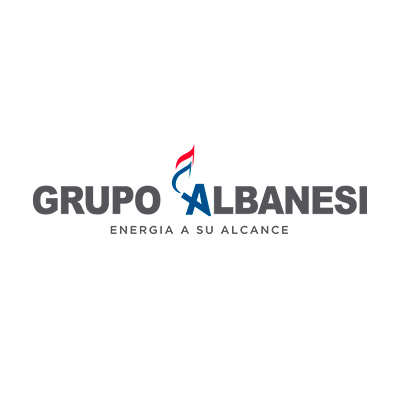 Counsel to Generación Mediterránea S.A., Central Térmica Roca S.A., as co-issuers, and Albanesi Energía S.A., as guarantor, in the issuance of Class XXXIX Notes for an aggregate principal amount of US$353,963,822. The transaction was launched on October 9 and closed on November 8.
Counsel to Generación Mediterránea S.A., Central Térmica Roca S.A., as co-issuers, and Albanesi Energía S.A., as guarantor, in the issuance of Class XXXIX Notes for an aggregate principal amount of US$353,963,822. The transaction was launched on October 9 and closed on November 8.
The transaction consisted of a liability management operation that included:
- an exchange offer of the Senior Notes Class X due in 2027, and Senior Secured Notes Class XXII and XXXI due in 2026 and 2027, which were voluntarily tendered in exchange for Senior Notes Class XXXIX for an aggregate principal amount of US$268,674,033, along with a consent solicitation to the holders of the Existing Notes; and
- the issuance of Senior Notes Class XXXIX for an additional aggregate principal amount of US$141,000,000, whose proceeds were used by the co-issuers to redeem the Senior Secured Notes Class XXII and XXXI that were not voluntarily tendered in the exchange offer and consent solicitation.
The offer targeted both the Argentine and international markets under exemptions provided by the U.S. Securities Act of 1933, as amended.
Simultaneously, to comply with commitments under the co-issuers' Senior Notes Classes XXXV, XXXVI, XXXVII, and XXXVIII, and AESA's Senior Notes Classes XV, XVI, XVII, and XVIII, new notes were offered to holders of these obligations: Senior Notes Classes XL and XLI issued by the co-issuers, and Senior Notes Classes XIX and XX issued by AESA. These new notes have the same terms of maturity and interest rate as the Senior Notes Class XXXIX and are secured by the same trust and first-priority pledges securing Class XXXIX.
The co-issuers issued Senior Notes Classes XL and XLI for an aggregate principal amount of US$17,086,392 under the GEMSA-CTR Program. AESA issued Senior Notes Classes XIX and XX for an aggregate principal amount of US$12,077,185 under its global program of simple (non-convertible) notes for a maximum aggregate principal amount of US$250,000,000 (or its equivalent in other currencies or units of measure).
In the issuance of the Senior Notes Class XXXIX, The Bank of New York Mellon acted as trustee, paying agent, registrar, and transfer agent; TMF Trust Company (Argentina) S.A. acted as Argentine collateral agent and trustee; Citigroup Global Markets Inc., J.P. Morgan Securities LLC, and Santander US Capital Markets LLC acted as international arrangers and placement agents; BCP Securities Inc. and Latin Securities S.A. Agente de Valores acted as international placement agents; Balanz Capital Valores S.A.U. acted as co-arranger; and Balanz Capital Valores S.A.U., Latin Securities S.A., Banco Santander Argentina S.A., Banco de Servicios y Transacciones S.A., Puente Hnos. S.A., SBS Trading S.A., Allaria S.A., Invertironline S.A.U., Invertir en Bolsa S.A., Bull Market Brokers S.A., Inviu S.A.U., Banco de la Provincia de Buenos Aires, Neix S.A., Adcap Securities Argentina S.A., PP Inversiones S.A., and Cocos Capital S.A. acted as local information agents and placement agents.
Municipality of Cordoba’s Series LI Treasury Notes Issuance for AR$ 19,000,000,000












Legal counsel to the Municipality of Cordoba, as issuer, Banco de la Provincia de Córdoba S.A., as arranger and placement, and to Banco Comafi S.A., Banco Hipotecario S.A., Banco de Servicios y Transacciones S.A., Puente Hnos. S.A., Banco de Galicia y Buenos Aires S.A.U., Banco Santander Argentina S.A., Facimex Valores S.A., Adcap Securities Argentina S.A., Banco Patagonia S.A., and Macro Securities S.A.U. as placement agents, in the issuance of Municipality of Cordoba’s Series LI Treasury Notes (the “Treasury Notes Series LI”), under the Municipality of Cordoba’s Treasury Notes Issuance Program. The payments due under the Treasury Notes Series LI are secured by certain rights of the Municipality to collect certain contribution charges over the commercial, industrial and services activity. The Treasury Notes Series LI were issued on November 19, 2024, for AR$ 19,000,000,000 at an annual floating interest rate equivalent to Badlar plus 6.99%, due on November 14, 2025.
Argentina extends the Emergency in the Energy Sector
On November 20, 2024, the Government of Argentina released Decree 1023/2024 (“Decree 1023”), that extends the emergency of the energy sector previously declared by Decree 55/2023, enacted on December 2023 (“Decree 55”) until July 9, 2025 (please see our comments on Decree 55, here).
Decree 1023 is applicable to the segments of generation, transport and distribution of electric energy under federal jurisdiction, as well as to transport and distribution of natural gas.
Moreover, Decree 1023:
- Instructs the Secretary of Energy to continue with the implementation of the necessary measures regarding the above-mentioned activities to establish the rate and pricing criteria under conditions of competition and free access and guaranteeing the provision of public utilities.
- Establishes that the resulting rates of the revision ordered by Decree 55 shall become effective by July 9, 2025.
- Extends the intervention of gas and power regulators –ENRE and ENARGAS– until the new entity established by Foundations Law is constituted.
For additional information, please contact Nicolás Eliaschev, Javier Constanzó, Daiana Perrone, Victoria Barrueco and/or Manuel Crespi.
Legal Advice in the Issuance of 360 Energy Solar S.A. Series 4 Notes for US$22,278,429 which Qualify as Green Bonds





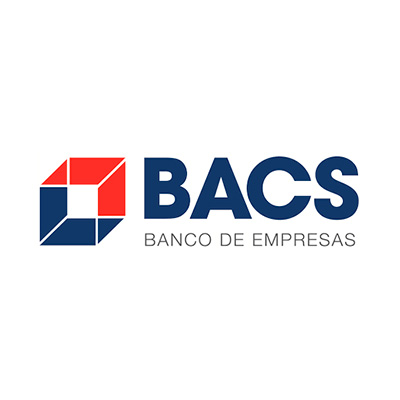
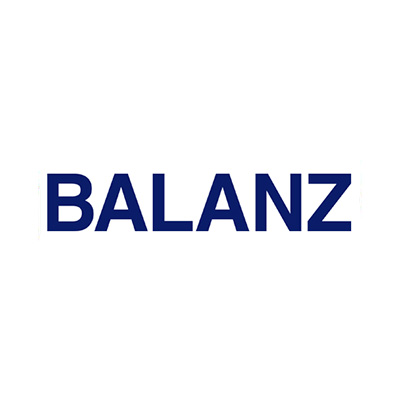



Counsel to Banco de Galicia y Buenos Aires S.A.U., Banco BBVA Argentina S.A., Industrial and Commercial Bank of China (Argentina) S.A.U., Banco Comafi S.A., Banco de Servicios y Transacciones S.A., BACS Banco de Crédito y Securitización S.A., Balanz Capital Valores S.A.U., Invertir en Bolsa S.A., Banco Mariva S.A., and PP Inversiones S.A. in the issuance of 360 Energy Solar S.A. 8.00% Series 4 Notes for US$22,278,429 due October 30, 2027 (indistinctively, the “Series 4 Notes” or the “Notes”), issued under the Global Notes Program for an amount of up to U$S200,000,000 (or its equivalent in other currencies or other unit value).
Series 4 Notes qualify as Green Bonds.
The proceeds from the placement will be used to: (i) finance the construction, installation, commissioning, operation, and maintenance of photovoltaic solar parks and storage systems related to the Eligible Green Project Portfolio; (ii) integration of working capital; and (iii) integration of capital contributions in controlled or related companies. The Notes are denominated and payable in U.S. dollars in Argentina.
Banco de Galicia y Buenos Aires S.A.U., Banco BBVA Argentina S.A., Industrial and Commercial Bank of China (Argentina) S.A.U., Banco Comafi S.A.,Banco de Servicios y Transacciones S.A., BACS Banco de Crédito y Securitización S.A., Balanz Capital Valores S.A.U., Invertir en Bolsa S.A., Banco Mariva S.A., and PP Inversiones S.A. acted as placement agents of the Notes. Banco de Galicia y Buenos Aires S.A.U. and Banco BBVA Argentina S.A. acted as arrangers and, Banco de Galicia y Buenos Aires S.A.U., also acted as settlement agent.
Legal Advice in Petrolera Aconcagua Energía S.A.’s Notes Issuance
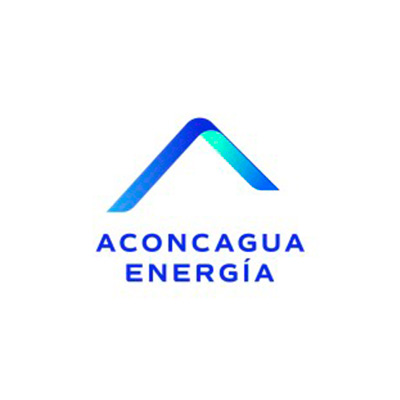

Counsel in the issuance of Petrolera Aconcagua Energía S.A.’s (i) Class XV simple notes for a total amount of U$S 30,617,307 (thirty million six hundred and seventeen thousand three hundred and seven hundred and seven U.S. Dollars) denominated and payable in U.S. Dollars, at a fixed interest rate of 9.00% nominal annual rate, maturing on October 28, 2028, and (ii) Class XVI simple notes for a total amount of U$S 18,159,306 (eighteen million one hundred and fifty-nine thousand three hundred and six U.S. Dollars) denominated in U.S. Dollars, to be paid in Pesos or through the delivery of Eligible Notes, payable in Pesos at the Applicable Exchange Rate, at a fixed interest rate of 8.00% nominal annual rate, maturing on October 28, 2028, under its Global Notes Program (not convertible into shares), for up to a maximum amount of U.S. Dollars 500,000,000 (or its equivalent in other currencies or units of value)
Banco de Servicios y Transacciones S.A., acted as arranger, settlement and placement agent of the Notes, Banco de Galicia y Buenos Aires S.A.U., Banco Santander Argentina S.A., Puente Hnos S.A. and Balanz Capital Valores S.A.U. acted as arrangers and placement agents of the Notes, and Banco Mariva S.A., Allaria S.A., Invertir en Bolsa S.A., Banco Supervielle S.A., SBS Trading S.A., Banco de la Provincia de Buenos Aires, TPCG Valores S.A.U., Invertironline S.A.U., Cocos Capital S.A., BACS Banco de Crédito y Securitización S.A., Neix S.A., Latin Securities S.A., Consultatio Investments S.A., Facimex Valores S.A. and PP Inversiones S.A. acted as placement agents of the Notes.



